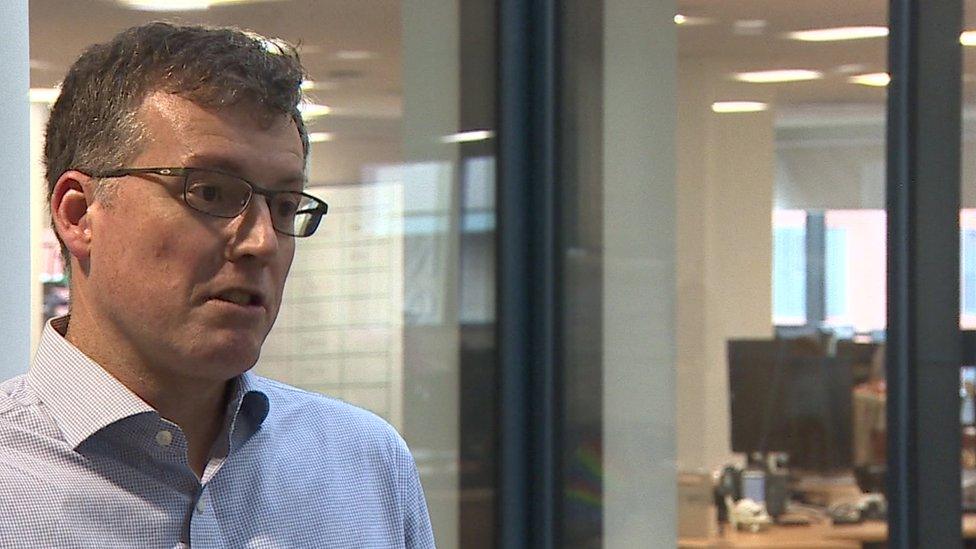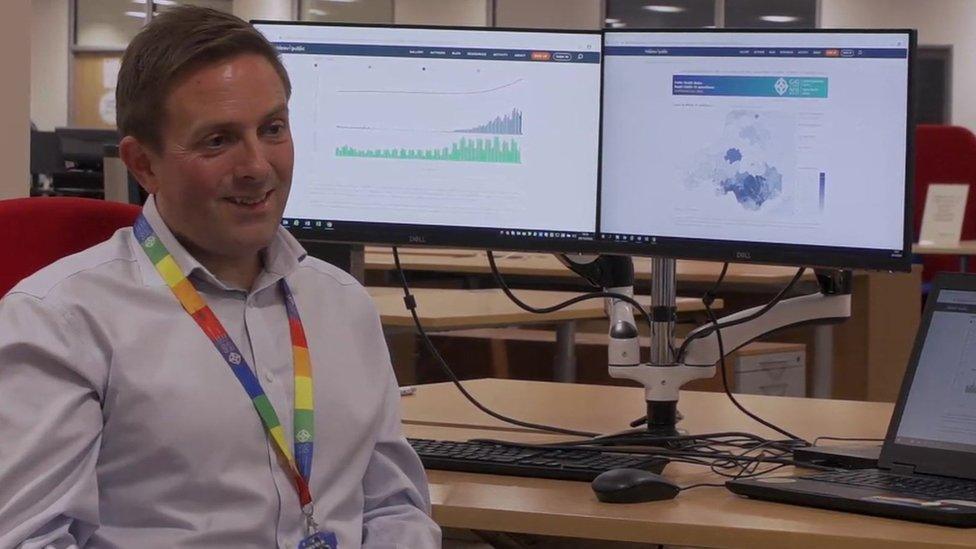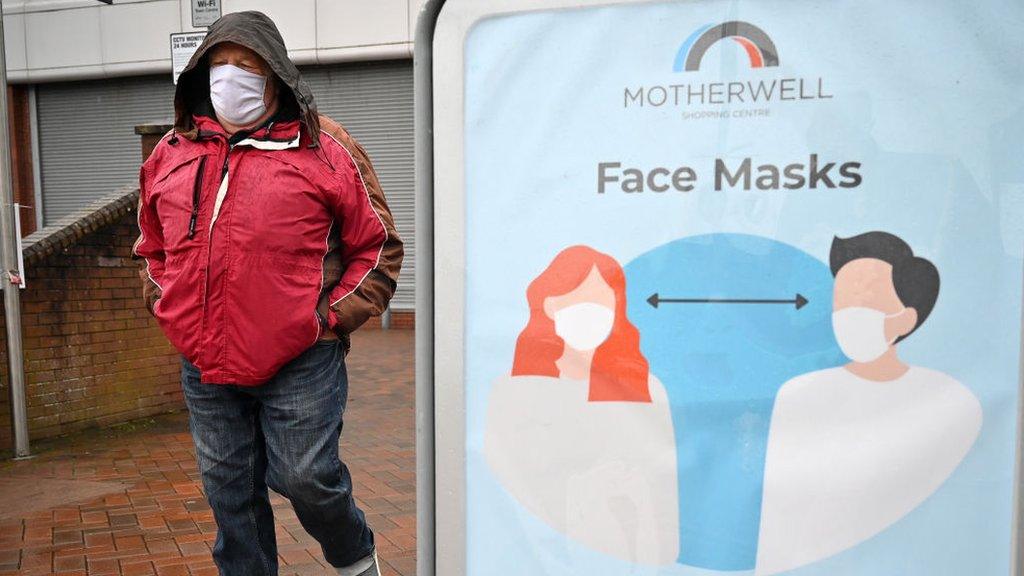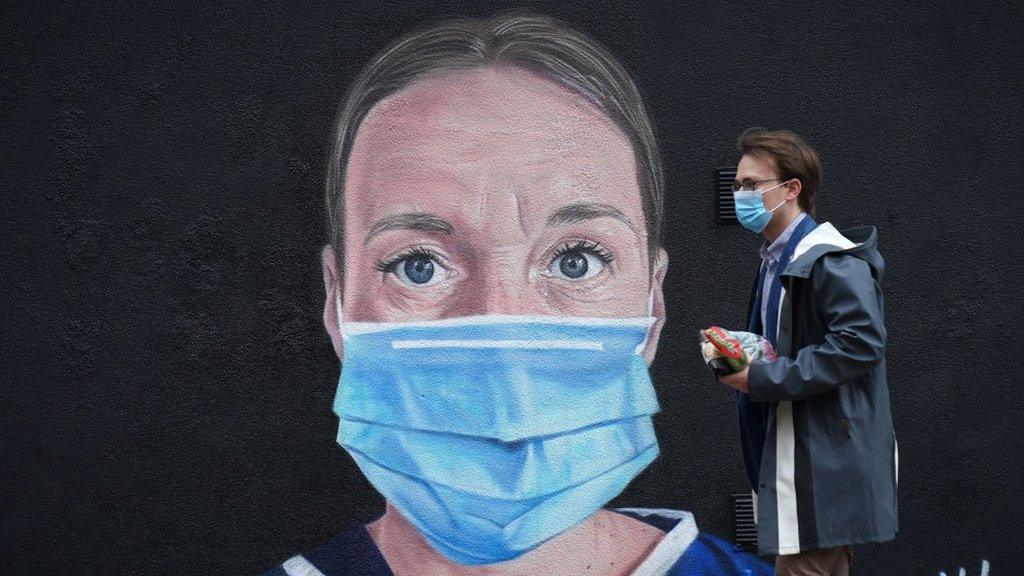Covid-19: 'Chatting indoors behind cases spike before new lockdown'
- Published
- comments
Dr Chris Williams said even sitting across a table from someone else could lead to transmission of the virus
Chatting in pubs, restaurants and homes was "mostly" how coronavirus spread before Wales' firebreak lockdown, Public Health Wales has said.
Dr Chris Williams, of PHW's data analysing surveillance team, said most cases had nothing to do with venues making mistakes.
The cases were simply down to how people behaved.
"It's not to do particularly with the nature of the pub or the bar," said Dr Williams.
"It's just the fact that you're talking to someone across a table who's in a different household.
"Talking, unfortunately, is great for transmission, as is singing and shouting.
"Those are the kind of things that we see, that manifest themselves in the rising numbers."
A Wales-wide lockdown began last week to curb rising cases.
Test-and-trace teams look forward along the transmission chain to see who an infection may have spread to.
But Dr Williams and his team look at people's behaviour in the two weeks before they become unwell.

Dr Chris Williams looks at people's behaviour in the weeks before they become unwell
The fact people find not chatting difficult was "part of the problem", he said.
"Every time you stop and talk to someone, particularly if they're outside your household, then you've just had a potential transmission event.
"You may never know about it because many people are asymptomatic."
He said hand washing remained important in getting rid of the virus.
"But I think we're increasingly recognising that this is a respiratory droplet infection, so the closer you are talking to someone, the better it transmits," Dr Williams said.
"Speaking to people is something we find very hard not to do. I think that's part of the problem because we don't see that as a bad activity."
Despite problems among adults socialising, new PHW data suggested schools were "not seeing extensive transmission".
Since the pandemic began, the surveillance team has been studying all incoming virus data.
Its conclusions can be vital in informing decisions about restrictions and lockdowns.

Epidemiologist Dr Simon Cottrell said the team were always hopeful they had seen the virus peak
"We come across hundreds of thousands of rows of data on a daily basis," said team epidemiologist Dr Simon Cottrell.
"It's our job to turn that data into meaningful information that could make a difference to the person on the street."
The department publishes some of its data on Public Health Wales' website. Other insights are provided upon request to Welsh Government ministers and departments.
"At the moment we're still seeing increasing trends in people going into hospital because they have Covid," Dr Cottrell said.
"We hope if the firebreaker is to be successful then, in the next three to four weeks, we'll see that levelling off or maybe even reducing.
"You're always hopeful that you've seen the peak - so every time you come in and you see a new peak that's higher than the previous peak, it's upsetting for us just like everybody else."
Some of the team had been struck down by Covid themselves, he said.
"I think everybody gets affected by that. We just have to be patient and see what the data tells us next."
- Published29 October 2020

- Published17 October 2020

- Published5 July 2022
